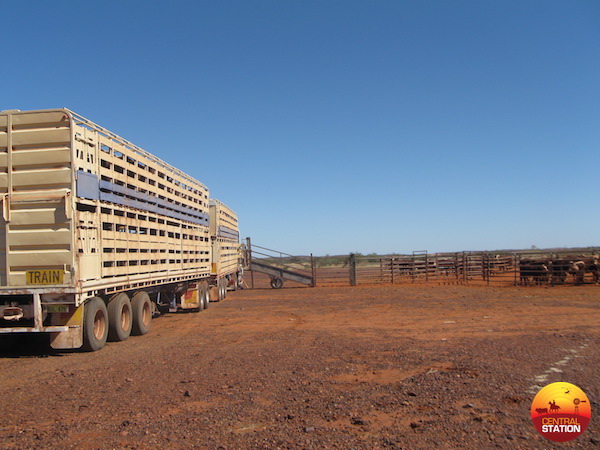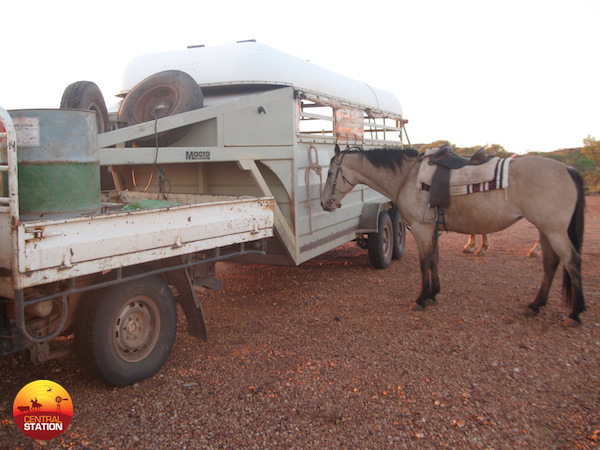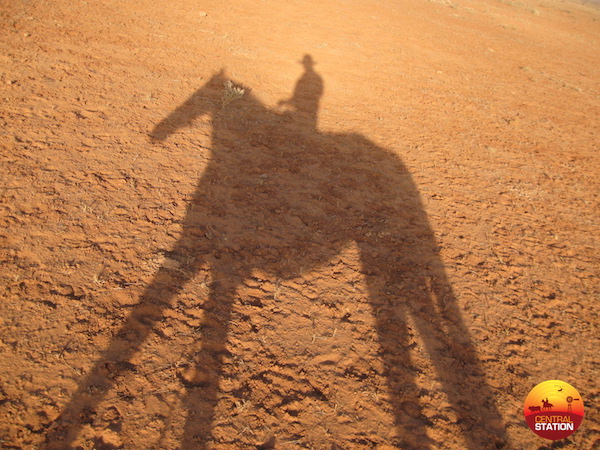Sticking It Out Through Challenges
Host: Horsemanship Linked Learning
Written by Shorna Ross
When I first rocked up at Ashburton, I had a lot more practical skills and a grasp of what working on a station would be like thanks to growing up on a farm, than some of the McLeod’s Daughter’s fanatics I have seen since. However, I still had a bit of a fantasy running in my head. It involved lots of horses and cattle work, straight away. Reality was there was only ‘Loop’ the stallion and an unbroken young colt in the horse yards and a lot of jobs that were on the to do list before mustering started.
This list was extremely comprehensive and very uninteresting to me. I did not enjoy things like concreting around the homestead, painting stock crates (with a brush) or building a butcher shed. Fitting truck tires, re-building bull-buggies, and bore runs were more interesting however I was often asked to babysit little miss whilst the jackaroo did these things with the boss or the boreman ‘Tricky’, which although I loved kids, I resented (This is interesting in itself, as you will see in later blogs I became the opposite and love working with station kids). I think I did at times act like a spoilt brat and annoyed the Boss and I questioned why I was there. During this time it would have been easy to pack up and head home which I very nearly did.
 Stock crates I painted.
Stock crates I painted.
However, I choose to stay, the Boss put up with me, and eventually the horses were run in with the plane and a bull buggy and we drafted through and this was where the fun (in my mind) started. I had one main horse initially, Kaluah aka Donkey and rode others if required for example if we had a few big days in a row. I was very lucky throughout my years at Ashburton in the sense that I always had brilliant horses to ride. Lots of dollars had gone into improving the horse plant with quality Australian Stockhorse bloodlines from studs over East and they certainly knew their jobs and earned their tucker. The Boss always said that he wanted me to ride good horses so I knew what they could do before I needed to teach them later down the track.

Our first muster happened to be on a part of the station that had some of the trickiest cattle to work with including lots of mickey bulls and cleanskins. From the actual muster through to drafting, trucking, and processing I was well and truly hooked and looking back glad I stuck it out and stayed. I thrived on the energy, excitement, riding, thinking, and learning on mustering days. I loved the early morning sunrises and the rhythm and flow of yard work, the physical work, acquiring new skills, building fitness and muscle and the sense of achievement when we finished the yard, bushed the cows and calves, and sent the sale cattle on a truck or into the holding paddock.
Since that first muster I have seen more days through from well before dawn to well after dusk working on stations than I can count. I worked with cattle and horses, worked with people who had unique backgrounds and skills sets, became handy at whatever jobs came up whether it be pulling bores, fixing tires, driving a road train, or re-wiring a semi-trailer.
Every moment went a long way into shaping me into the person I am today. I learnt patience, independence, to listen, to teach, to slow down, to have a go, to trust my instincts, to speak up and most importantly – every experience has value, whether I perceive it as positive or negative. When I have been most challenged are the times I have experienced ultimate growth. From varied experiences such as running over my own pup, clashing with other workers, making mistakes when drafting cattle, losing a shoe and being useless on a muster, putting down cattle when it needs to be done, to not listening to the chopper pilot properly and ending up in the wrong spot – these memories are part of my time working on stations. The reason I share this is to offer a piece of advice I learnt the hard way; don’t be put off by challenges, stick it out and you will come out on the other side with a whole new perspective.

